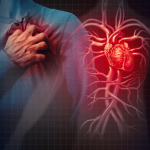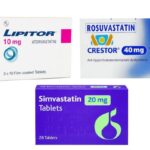Is 40 mg Statin a High-dose?

Statins are drugs that can lower your cholesterol. They work by blocking a substance your body needs to make cholesterol.
Lowering cholesterol isn’t the only benefit associated with statins. These medications have also been linked to a lower risk of heart disease and stroke. These drugs may help stabilize the plaques on blood vessel walls and reduce the risk of certain blood clots.
A number of statins are available for use in the United States. They include:
- Atorvastatin (Lipitor)
- Lovastatin (Altoprev)
- Pitavastatin (Livalo, Zypitamag)
- Pravastatin (Pravachol)
- Rosuvastatin (Crestor, Ezallor)
- Simvastatin (Zocor)
Sometimes, a statin is combined with another heart medication. Examples are atorvastatin-amlodipine (Caduet) and ezetimibe-simvastatin (Vytorin).
Why have I been offered statins?
Having a high level of LDL cholesterol is potentially dangerous, as it can lead to a hardening and narrowing of the arteries (atherosclerosis) and cardiovascular disease (CVD).
CVD is a general term that describes a disease of the heart or blood vessels. It’s the most common cause of death in the UK.
The main types of CVD are:
- coronary heart disease – when the blood supply to the heart becomes restricted
- angina – chest pain caused by reduced blood flow to the heart muscles
- heart attacks – when the supply of blood to the heart is suddenly blocked
- stroke – when the supply of blood to the brain becomes blocked
A doctor may recommend taking statins if either:
- you have been diagnosed with a form of CVD
- your personal and family medical history suggests you’re likely to develop CVD at some point over the next 10 years and lifestyle measures have not reduced this risk
How should statins be taken?
Statins come as tablets that are taken once a day. For some types of statin, it does not matter what time of day you take it, as long as you stick to the same time. Some types of statin like Atorvastatin should be taken in the evening. Check with your doctor whether there’s a particular time of day you should take your statin.
You usually have to continue taking statins for life because if you stop taking them, your cholesterol will return to a high level within a few weeks. If you forget to take your dose, do not take an extra one to make up for it. Just take your next dose, as usual, the following day.
Is 40 mg statin a high dose?
Yes, 40 mg of a statin medication such as atorvastatin (Lipitor) or simvastatin (Zocor) is considered a moderate to high dose and may be appropriate for some individuals with high cholesterol levels or a high risk of cardiovascular disease.
Higher doses of the cholesterol-lowering drugs known as statins appear to boost survival slightly for certain people, a large new study reports. The study followed more than 509,000 patients with various forms of cardiovascular disease. The researchers found that survival increased by 9 percent when people took high versus moderate doses of statin for a little over a year.
High doses — also called high-intensity statin therapy — included 40 to 80 milligrams (mg) of atorvastatin (Lipitor) or 20 to 40 mg of rosuvastatin (Crestor) daily. Examples of moderate doses include 10 to 20 mg of Lipitor and 5 to 10 mg of Crestor, the study reported.
Unlike some previous studies, this study included adults over age 75. The study showed that people over 75 also have a survival benefit with high doses compared to moderate doses, said study author Dr. Fatima Rodriguez. She’s a cardiovascular medicine fellow at Stanford University School of Medicine in Palo Alto, Calif.
The bottom line, Rodriguez said, is that “if you have had a cardiovascular event, you should be on high-intensity statin therapy and you should be on the highest dose you are able to tolerate.”
Major guideline-issuing organizations haven’t come up with consistent recommendations for statin dosing, study authors said. For example, in 2013, the American College of Cardiology and the American Heart Association jointly recommended a risk-based strategy and giving high doses of statin therapy for those with cardiovascular disease with narrowed arteries for all who were under age 75 if they could tolerate it.
The evidence about statins’ benefits for those over 75 is limited due to their small numbers in clinical trials, the researchers noted in the study.
However, in 2014 the U.S. Veterans Administration (VA) recommended only moderate doses, noting the lack of conclusive evidence that higher-dose statins are more beneficial.
The current study included nearly 500,000 men and about 10,000 women. Their average age was 68.5 years at the start of the study. All were military veterans.
The appropriate dose of statin medication can vary depending on several factors, including the individual’s medical history, age, sex, and other medical conditions.
However, it’s important to note that any medication, including statins, should be prescribed by a healthcare professional who can evaluate an individual’s specific medical situation and determine the appropriate dosage. Additionally, some individuals may experience side effects from statin medications, and regular monitoring is important to ensure that the medication is effective and well-tolerated.
What are statin side effects?
Muscle pain and damage
One of the most common complaints of people taking statins is muscle pain. You may feel this pain as a soreness, tiredness, or weakness in your muscles. The pain can be mild discomfort, or it can be severe enough to make your daily activities difficult.
However, researchers have found a “nocebo” effect when it comes to perceived muscle pain and statins. A “nocebo” effect means people who have negative expectations about a medication report experiencing the potential side effect at higher rates than the drug should cause.
The actual risk of developing muscle pain as a result of taking statins is about 5 percent or less compared with taking a pill that doesn’t contain medication (placebo). However, studies have found that nearly 30 percent of people stopped taking the pills because of muscle aches even when they were taking a placebo.
A strong predictor you’ll experience muscle aches when taking statins could be whether or not you read about the potential side effect.
Very rarely, statins can cause life-threatening muscle damage called rhabdomyolysis (rab-doe-my-OL-ih-sis). Rhabdomyolysis can cause severe muscle pain, liver damage, kidney failure and death. The risk of very serious side effects is extremely low, and calculated in a few cases per million people taking statins. Rhabdomyolysis can occur when you take statins in combination with certain drugs or if you take a high dose of statins.
Liver damage
Occasionally, statin use could cause an increase in the level of enzymes that signal liver inflammation. If the increase is only mild, you can continue to take the drug. Rarely, if the increase is severe, you may need to try a different statin.
Although liver problems are rare, your doctor may order a liver enzyme test before or shortly after you begin to take a statin. You wouldn’t need any additional liver enzyme tests unless you begin to have signs or symptoms of trouble with your liver.
Contact your doctor immediately if you have unusual fatigue or weakness, loss of appetite, pain in your upper abdomen, dark-colored urine, or yellowing of your skin or eyes.
Increased blood sugar or type 2 diabetes
It’s possible your blood sugar (blood glucose) level may increase when you take a statin, which may lead to developing type 2 diabetes. The risk is small but important enough that the Food and Drug Administration (FDA) has issued a warning on statin labels regarding blood glucose levels and diabetes.
The increase generally occurs when blood sugar levels are already higher than normal and fall in the prediabetes or diabetes range when you begin taking a statin.
Statins prevent heart attacks in people with diabetes, so the relevance of the mild increase in sugar values with statins observed in some people is unclear. The benefit of taking statins likely outweighs the small risk to have the blood sugar level go up. Talk to your doctor if you have concerns.
Neurological side effects
The FDA warns on statin labels that some people have developed memory loss or confusion while taking statins. These side effects reverse once you stop taking the medication. There is limited evidence to prove a cause-effect relationship, but talk to your doctor if you experience memory loss or confusion while taking statins.
There has also been evidence that statins may help with brain function — in people with dementia, for example. This is still being studied. Don’t stop taking your statin medication before talking to your doctor.





